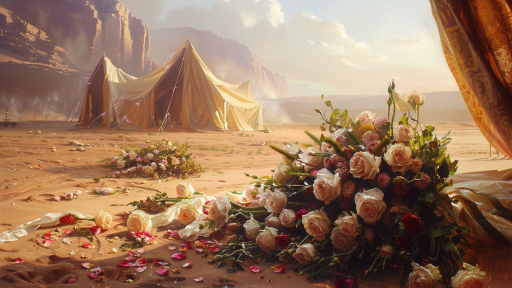Josep Borell, the EU’s foreign policy chief has been condemned for his recent remarks that rang of racism for many:
“Europe is a garden. We have built a garden. Everything works. It is the best combination of political freedom, economic prosperity and social cohesion that the humankind has been able to build – the three things together…
The rest of the world [is] not exactly a garden. Most of the rest of the world is a jungle, and the jungle could invade the garden. The gardeners should take care of it, but they will not protect the garden by building walls. A nice small garden surrounded by high walls in order to prevent the jungle from coming in is not going to be a solution. Because the jungle has a strong growth capacity, and the wall will never be high enough in order to protect the garden.
“The gardeners have to go to the jungle. Europeans have to be much more engaged with the rest of the world. Otherwise, the rest of the world will invade us, by different ways and means.”

The overall picture he paints is sadly accurate — there is indeed a divide between Europe and the rest of the world. Europe, along with the West in general, is without doubt a ‘garden’. Its economic prosperity is unmatched in history, while much of the rest of the world continues to be mired in poverty, political instability, and social unrest.
But Borrell fails to mention that this divide is significantly down to centuries of colonialism, subjugation, and exploitation. The cherished garden was built from the spoils of the so-called Jungle, and the Jungle drips with the blood spilled by the blessed Gardeners.
Even today, while colonialism has technically ended, the Global South is captured in an economic system that enriches the West at the South’s expense. Those who dare resist are subject to political intrigue or outright war. Thus Borrel’s depiction demonstrates the truth of the aphorism that history is written by the victors.
What does Islam have to say on all this? Muslims believe that the Quran is a guide for mankind for all time to come, and as such one would expect to find numerous prophecies relating to our era, known as the Latter Days. Indeed, we find many.
One such prophecy comes in the form of a parable. The parable of the two men contrasts the conditions that would be seen between the Christian West and the Muslim world — the dominant religions of this age. The following interpretation is an abridged form of that given by Hazrat Mirza Bashirrudin Mahmud Ahmad’sra Five Volume Commentary.
The parable of the two men represents the decline of the Muslims and the rise and fall of Christian Europe in the latter days. It takes the form of a dialogue between two men, one of whom is provided with two gardens. Such bounteous provision is, according to the Quran, only due to God. In other words, European prosperity couldn’t have come about without God’s authorisation.

It begins like this:
“And set forth to them the parable of two men: one of them We provided with two gardens of grapes, and surrounded them with date-palms, and between the two We placed corn-fields” (18:33)
The verse speaks of two gardens, which is understood to refer to two periods in Christian history when they would rise to great power. The first occurred during the Roman period, prior to Islam, and the second, far more prosperous period, would occur in the Latter Days. Amidst the two gardens, God caused “a stream to flow” to revitalise the world. In other words, the advent of Islam would be a means of enlightenment for the world, and indeed the Western Civilisation that succeeded it.
“Each of the gardens yielded its fruit in abundance and failed not the least therein. And in between the two We caused a stream to flow” (18:34)
However, according to the parable, arrogance would take hold of the man to whom God had bestowed such fruits. He would become prideful of his wealth and military might, intimidating his neighbour.
“And he had fruit in abundance. And he said to his companion, arguing boastfully with him, ‘I am richer than thou in wealth and stronger in respect of men” (18:35)
In fact, the Christian West would fall into a false sense of security, thinking that their nations would never perish. Their arrogance would lead them to commit iniquities of every kind that would be the cause of their downfall. They would believe that their gardens would last forever, even if they displeased God.
“And he entered his garden while he was wronging his soul. He said, ‘I do not think that this will ever perish” (18:36)
There would appear two classes of people in the Christian Kingdom. First, those who have lost faith in God and the afterlife — the atheists who have lost all sense of accountability. Secondly, those who continue to believe that Jesus will atone for their sins, no matter what injustices they commit.
“And I do not think the Hour will ever come. And even if I am ever brought back to my Lord, I shall, surely, find a better resort than this.” (18:37)
In the parable, the poor Muslim reminds his Christian companion of his insignificant beginnings, thus reminding him that just as God had bestowed him with prosperity, He could take it away from him just as well.
“His companion said to him, while he was arguing with him, “Dost thou disbelieve in Him Who created thee from dust, then from a sperm drop, then fashioned thee into a perfect man?
But as for me, I believe that Allah alone is my Lord, and I will not associate any one with my Lord” (18:38-39)
In fact, the verse bespeaks of the Muslim’s sympathy for his Christian Companion – reminding him that only that which God wills comes to pass. And God does not will for injustice to indefinitely persist.
“And why didst thou not say when thou didst enter thy garden; ‘Only that which Allah wills comes to pass. There is no power save in Allah.’ If thou seest me as less than thee in riches and offspring.” (18:40)
The companion continues to warn him that God Himself would create circumstances that would lead to the destruction of his garden — Borrell’s paradise — and bestow upon the Muslim’s something better.
“Perhaps my Lord will give me something better than thy garden, and will send on it (thy garden) a thunderbolt from heaven so that it will become a bare slippery ground
Or its water will become sunk in the ground so that thou wilt not be able to find it.” (18:41-42)
Indeed, this is a prophecy bound to be fulfilled. There is nothing the nations could do to prevent this from happening while they stayed in the same condition, and all their efforts to oppose it will go in vain.
The Quran then recounts how their garden was destroyed, and all the gardeners worked for came to naught. They realised that their atheism and worship of the world led them to destruction, and that when God’s wrath came, nothing could save them.
“And his fruit was actually destroyed, and he began to wring his hands for what he had spent on it and it had all fallen down on its trellises. And he said, ‘Would that I had not associated any one with my Lord!’
“And he had no party to help him against Allah, nor was he able to defend himself.” (18:43-44)

The final verse constitutes a reminder that protection only comes from Allah. He is the one that bestows, and He is the one that takes away.
“In such a case protection comes only from Allah, the True. He is the Best in respect of reward, and the Best in respect of consequence.” (18:45)
Borrell’s words betray a colonial mindset that permeates much of western thought. The beasts of the jungle must be tamed, and the fruits of the garden protected at all cost. At no point is there an understanding that the fruits can be multiplied for all through cooperation and respect.
Instead, those who worship the world became jealous over its goods, committing injustices to preserve them at any costs. This is inevitable for a functionally atheist ruling class who have no real sense of divine accountability, and no real brotherhood with the rest of mankind.
But Borrell and his ilk must be careful. History may be written by the victors, but victory can change hands with a mere flash of lightning.











5
4.5